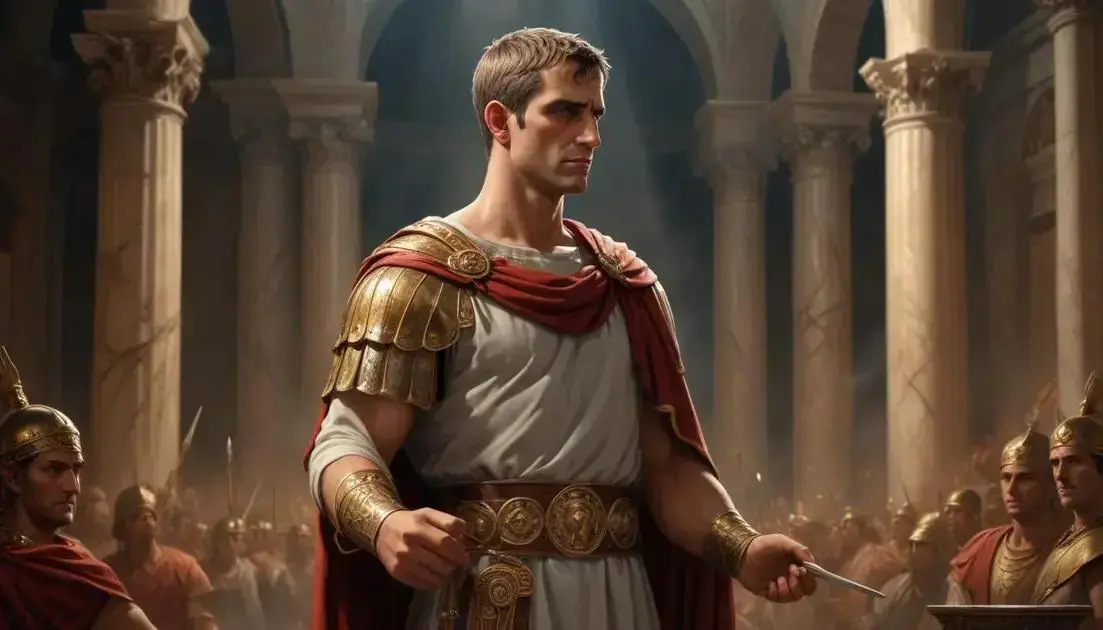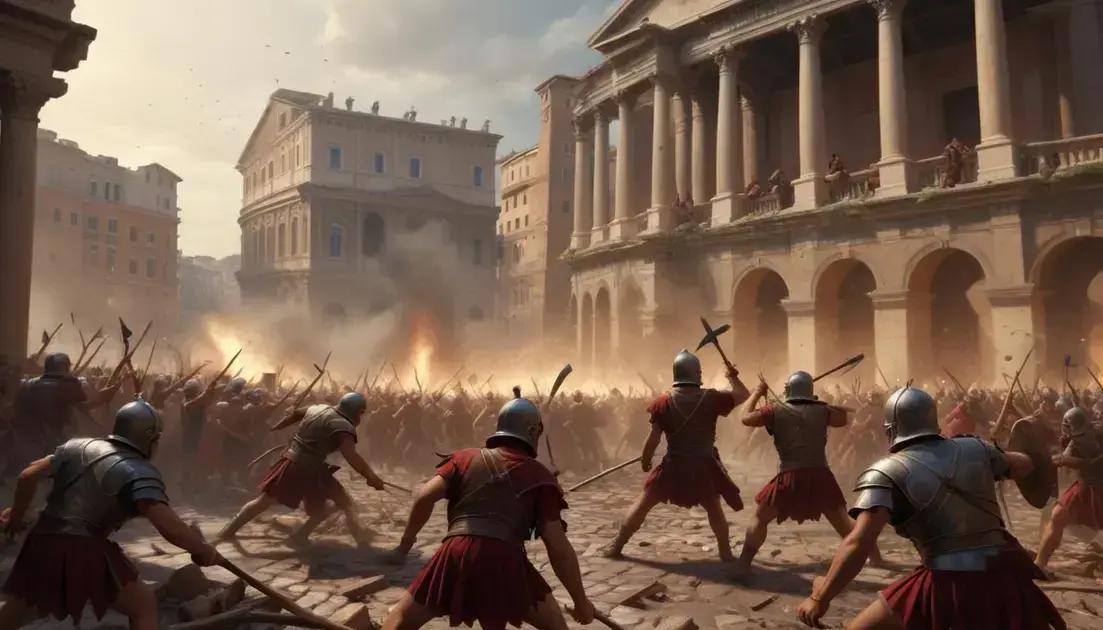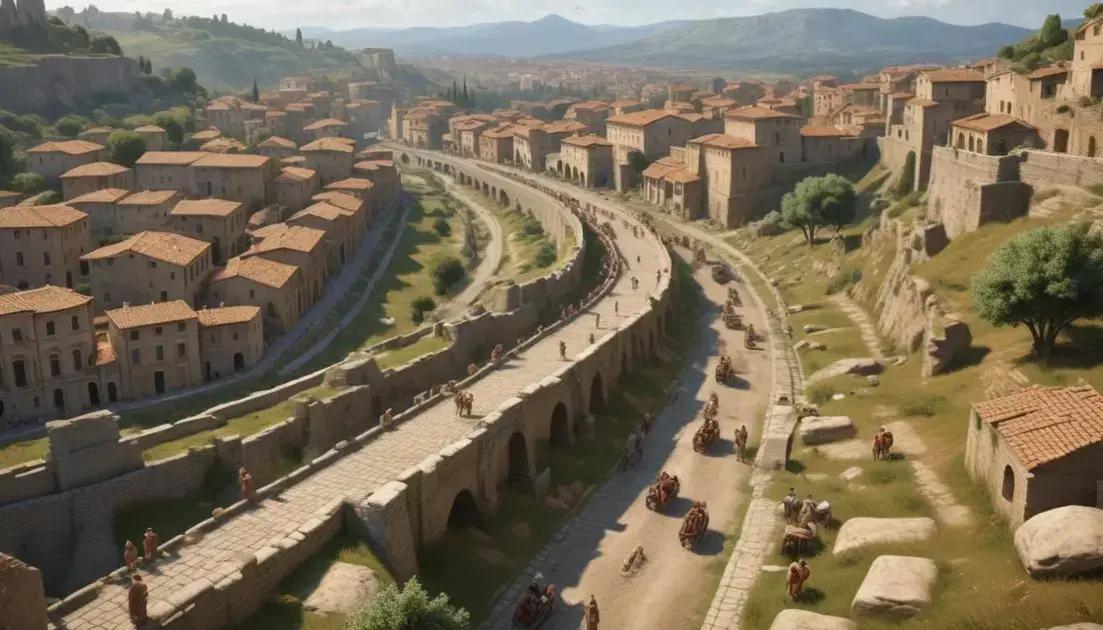
Constantine and His Religious Power Strategy
Constantine’s strategies significantly shaped the Roman Empire by merging religion with politics, leading to the rise of Christianity as a dominant faith. His support for the church and implementation of religious policies created a lasting legacy that influenced future rulers and cultural developments, while also sparking conflicts among various belief systems. Understanding this historical transformation highlights the continued relevance of faith in governance today.
Have you ever wondered how Constantine managed to intertwine religion with politics? His strategy is a fascinating glimpse into how faith shaped the empire’s destiny.
Constantine’s Conversion
Constantine’s conversion to Christianity was a major turning point in history. It changed not only his life but also the future of the Roman Empire. He embraced Christianity around AD 312, after a significant battle. Legend tells us he saw a vision of a cross in the sky, which influenced his decision to adopt the faith.
The Vision
Before the Battle of Milvian Bridge, Constantine is said to have experienced a profound vision. This moment sparked his interest in Christianity. Many believe it was a sign guiding him towards a new path. Following this vision, he vowed to honor the Christian God if he won the battle.
Impact on the Empire
His conversion had vast implications. It opened the door for Christianity to spread across the empire. Constantine’s support led to the faith becoming a significant part of Roman life. He issued the Edict of Milan in AD 313, granting religious tolerance to Christians.
Building a Legacy
Constantine didn’t just convert; he built churches and supported Christian leaders. This helped to establish a strong Christian community. His actions showed how religion could unify and strengthen an empire. The faith he promoted would shape Europe for centuries to come.
Overall, Constantine’s conversion was about more than just faith. It was a strategic move that merged religion with power. This approach laid the groundwork for how future leaders viewed faith and governance.
Political Implications of Christianity
The political implications of Christianity during Constantine’s time were significant. By adopting Christianity, he altered the relationship between the church and the state. This shift made Christianity not just a faith, but also a tool for governance.
Unifying the Empire
Christianity helped unify the Roman Empire. A single faith created shared values among diverse groups. This was crucial for maintaining stability throughout the empire. People found common ground in their beliefs, which made governance easier.
Support for the Church
Constantine actively supported the Christian church. He provided resources and legal protection to Christians. This support gave the church more power and influence than before. It paved the way for the church to play a role in political matters.
Edict of Milan
The Edict of Milan, issued in AD 313, was key. It legalized Christianity and allowed freedom of worship. This change had a big impact on how Christians were treated. They moved from being persecuted to being embraced by the state.
Challenges for Paganism
With Christianity gaining favor, pagan religions faced challenges. Many traditional beliefs started to decline. This shift stirred controversy and debate among people, as society adjusted to new norms.
Constantine’s political embrace of Christianity shaped future emperors. It laid the groundwork for a Christian empire. This transformation had lasting effects on Europe and the world.
Religious Policies and Their Impact
Constantine’s religious policies had a big impact on the Roman Empire. By supporting Christianity, he helped shape how religion intertwined with politics. His decisions changed the way people practiced their faith.
Support for Christianity
Under Constantine, Christianity received state support. He funded the building of churches and allowed Christians to openly worship. This support encouraged many to join the faith. As a result, the number of Christians grew significantly.
Legal Reforms
Constantine also made legal changes. He established laws that favored Christians. For example, he returned property to churches that had been taken away. This strengthened the church’s influence in society.
New Religious Festivals
With Christianity gaining ground, new religious festivals emerged. He introduced holidays to celebrate Christian events. These festivals became popular among people, further spreading the faith.
Impact on Other Religions
While Christianity thrived, other religions faced challenges. Pagan practices began to fade as Christianity rose. This shift led to tension between different faiths. Many people struggled with accepting this new religious landscape.
Constantine’s policies helped set a precedent for future emperors. They realized that supporting a single religion could unify the empire. This influence lasted long after his reign ended.
Legacy of Constantine’s Strategy
The legacy of Constantine’s strategy is significant and far-reaching. His approach to merging religion and politics shaped the future of Europe. By supporting Christianity, he left a lasting mark on history.
Foundation of a Christian Empire
Constantine’s reign helped lay the groundwork for a Christian empire. His support made Christianity the dominant faith in Rome. This influence continued for centuries as the church gained more power.
Influence on Future Leaders
Future leaders looked to Constantine’s strategies. Many realized that aligning with a major religion could strengthen their rule. This trend continued through the Middle Ages and into modern times.
Cultural Changes
Constantine’s policies also influenced culture. They encouraged the rise of Christian art, literature, and philosophy. These cultural changes shaped society and everyday life across Europe.
Challenges to Authority
While his strategies unified many, they also created challenges. Conflicts between Christians and pagans emerged. The struggle for power among different faiths became common, creating a complex social landscape.
Constantine’s legacy is clear: his decisions changed the course of history. His blend of faith and governance continues to affect discussions on power and religion today.
Conclusion
In conclusion, Constantine’s strategies significantly reshaped the Roman Empire and set a foundation for a Christian world. His support for Christianity transformed it into a leading faith, influencing future rulers and creating lasting cultural changes. While his legacy brought unity, it also sparked conflicts between various religions.
Understanding these historical moments reminds us of the power of faith in governance. The blend of religion and politics during Constantine’s time is still relevant today. By studying his legacy, we can learn about the ongoing relationship between belief systems and leadership.


